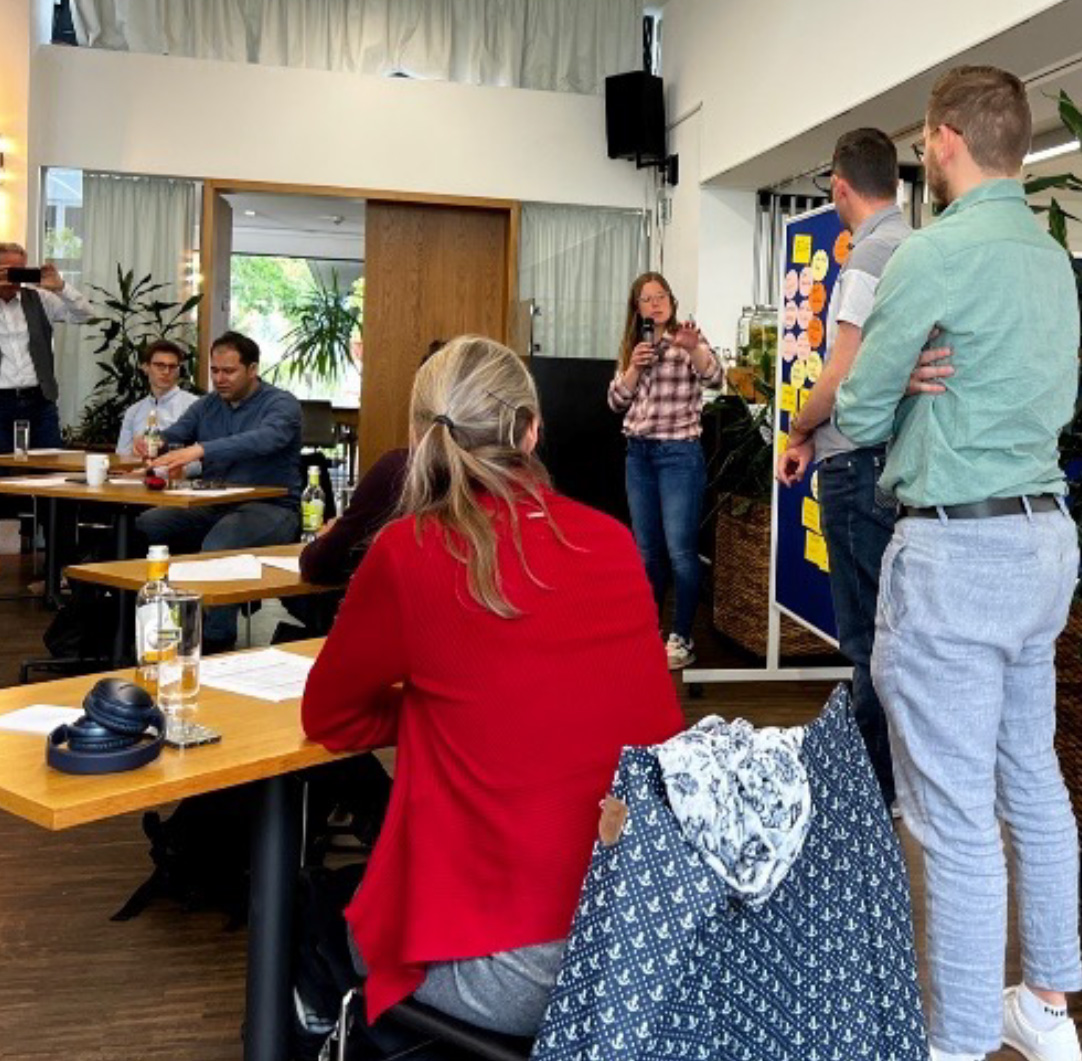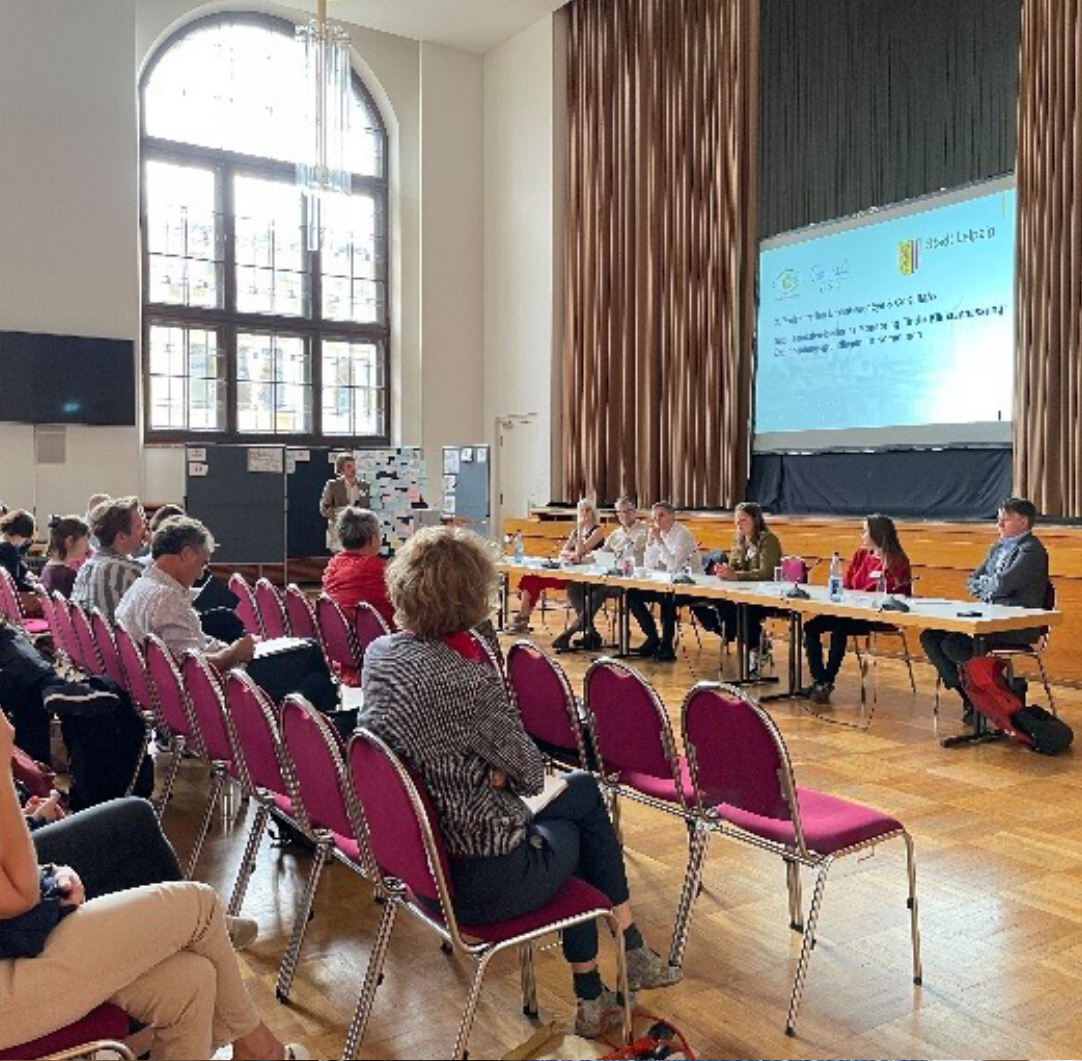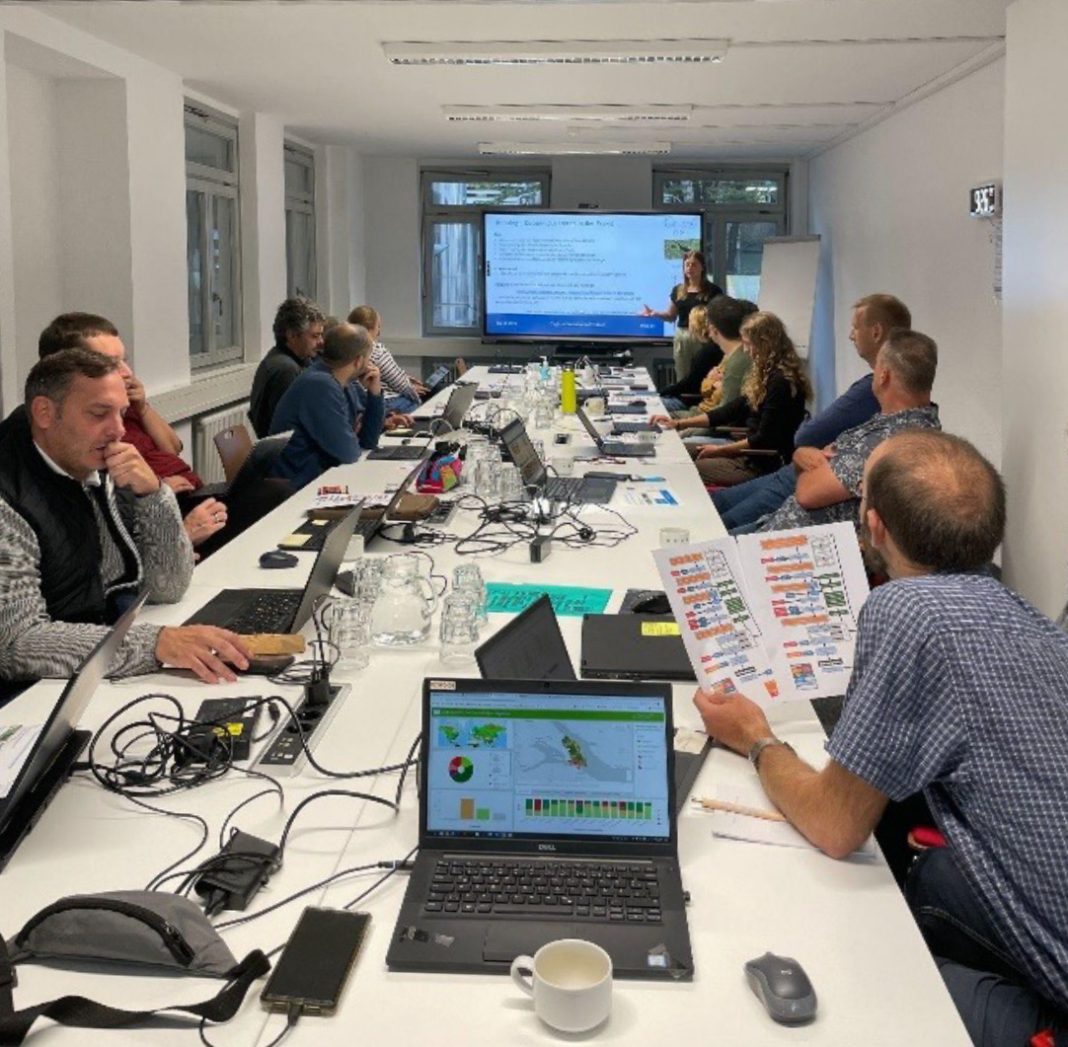Climate Service Center Germany (GERICS) is exploring future climate services for resilient cities by focusing on the CoKLIMAx lighthouse project
Climate change presents significant challenges to cities, impacting public health, infrastructure, and essential services through rising temperatures, extreme weather events, and altered precipitation patterns. To address these challenges, cities must prioritise climate adaptation strategies such as resilient infrastructure, green urban planning, and community engagement.
Leveraging climate and climate projection data, cities can develop targeted strategies for effective climate adaptation. This includes using current and future climate scenarios to inform decision-making, anticipate changes, and make data-driven decisions in infrastructure investments, land-use planning, and disaster preparedness. One project dedicated to addressing these challenges is the CoKLIMAx project, where the Climate Service Center Germany (GERICS) is a full scientific partner.

CoKLIMAx objectives and methods
CoKLIMAx is a DLR lighthouse project funded by the Federal Ministry for Digital and Transport, aimed at aiding cities and municipalities in preparing for climate change using Copernicus data and products. By developing a data-driven basis for decision-making, the project empowers city administrations to address current and future climate challenges. It involves extensive stakeholder engagement through surveys and workshops and the prototypical development of data integration workflows in collaboration with the Constance city administration.
Resources are available in the CoKLIMAx data hub, an ArcGIS Enterprise platform for data integration, visualisation, and knowledge transfer. The project consortium includes interdisciplinary experts in geoinformatics, climate science, and urban development. With extensive expertise in GIS, stakeholder engagement, and climate modelling, the Climate Service Center Germany (GERICS) stands out as a valuable project partner, where the contribution exceeds working the content-related questions towards the coordination of all involved disciplines.
Rethinking stakeholder involvement
To create climate services for the future, scientists need to talk to the relevant stakeholders. Within CoKLIMAx, the Climate Service Center Germany (GERICS) was leading an extensive user needs assessment, including a survey among the Constance administrative staff and follow-up interviews with key stakeholders. (1)
One innovative key element regarding stakeholder involvement within CoKLIMAx was the role of the Constance administration as a full project partner. A permanent position responsible for project communication and user feedback during the project duration enabled the team to react quickly to questions, recognise individual needs, communicate achievements and overall, stay connected with the users at all times.

with lighthouse project UrbanGreenEye with Stakeholders from multiple cities to evaluate CoKLIMAx developments. Source: T. Tewes
GIS as a key interface for climate data integration
Data availability alone is insufficient for effective climate services; integration of Copernicus Climate Change Service (C3S) data into existing systems is essential. CoKLIMAx aims to provide ready-to-use climate services within the ArcGIS Enterprise platform used by the Constance city administration and other cities. This platform allows for connecting geospatial data with climate and climate projection data, facilitating data acquisition, management, spatial analyses, and visualisation for stakeholders.
Thus, this platform made it possible to streamline the creation of Constance’s digital twin for urban climate simulations with the PALM-4U model. GERICS further collaborated with the city to integrate Copernicus satellite imagery into ArcGIS applications like StoryMaps and Dashboards, enhancing user engagement and illustrating the impacts of extreme weather and future flood events based on climate projections.
For example, the implications of extreme precipitation events in Constance, based on RCP scenarios and processed through a GIS-Bluespots analysis, are explained and visualised within the portal.
Continuation of climate services
The continuation of climate services within a city or regional administration must take centre stage. However, during the stakeholder needs assessment, the team identified the lack of legal regulations to prioritise climate adaptation in urban planning as a significant challenge for the city administration.
Other challenges identified include the necessity of financial support for technical maintenance and expert consultation post-project, as well as the need for clear responsibility for climate data management within city administrations. CoKLIMAx addressed these issues by making the city of Constance a full project partner, integrating climate adaptation into city processes from the start, and utilising the city’s existing ArcGIS Enterprise platform for resource integration. GERICS worked closely with the GIS department to develop workflows and emphasise the added value of climate data.
Capacity building
Capacity building, involving relevant stakeholders, and using a user-preferred platform must be central to all urban climate adaptation efforts. Past experiences have shown that a scientific project lasting three or four years might not adequately address the support needs of users after the project has ended. The co-development approach includes tailoring, developing, and delivering a climate service.
However, how can we ensure the continuation of a climate service? Capacity building is crucial and must be considered from the start. Users should be empowered to use a climate service and maintain or develop it further. Within CoKLIMAx, prototypical workflows for processing data from the Copernicus Climate Data Store (CDS) (2) were developed. GERICS supports the publishing of the workflows in the form of commented Jupyter Notebooks, where users can use the included instructions to learn about the script-based possibilities in handling big data and be enabled to develop and customise the resources further.
The CoKLIMAx project: Summary and outlook
The CoKLIMAx project exemplifies innovative efforts to enhance urban resilience. By leveraging Copernicus data and integrating it into user-friendly platforms like ArcGIS Enterprise, CoKLIMAx empowers city administrations to make informed, data-driven decisions. This approach not only addresses current climate risks but also equips cities to anticipate and prepare for future scenarios.
The success of initiatives like CoKLIMAx could serve as a model for other cities, underscoring the importance of stakeholder engagement, interdisciplinary collaboration, and capacity building. Cities can significantly improve their resilience by making climate data accessible and actionable and ensuring the sustainability of climate services through continuous support and integration into existing administrative frameworks.
The broader adoption of such comprehensive, data-informed strategies could play a crucial role in safeguarding urban environments and communities against the escalating impacts of climate change, setting a new standard for climate adaptation and urban planning worldwide.
References
- Harrs, J.-A.; Reinhart, V.; Vögt, V.; Scheib, J.P.P.; Tewes, T.; Pohl, T.; Rechid, D. Integration of climate information into urban climate change adaptation: a case study of municipal processes in Constance (accepted).
- https://cds.climate.copernicus.eu/cdsapp#!/home

This work is licensed under Creative Commons Attribution-NonCommercial-NoDerivatives 4.0 International.


